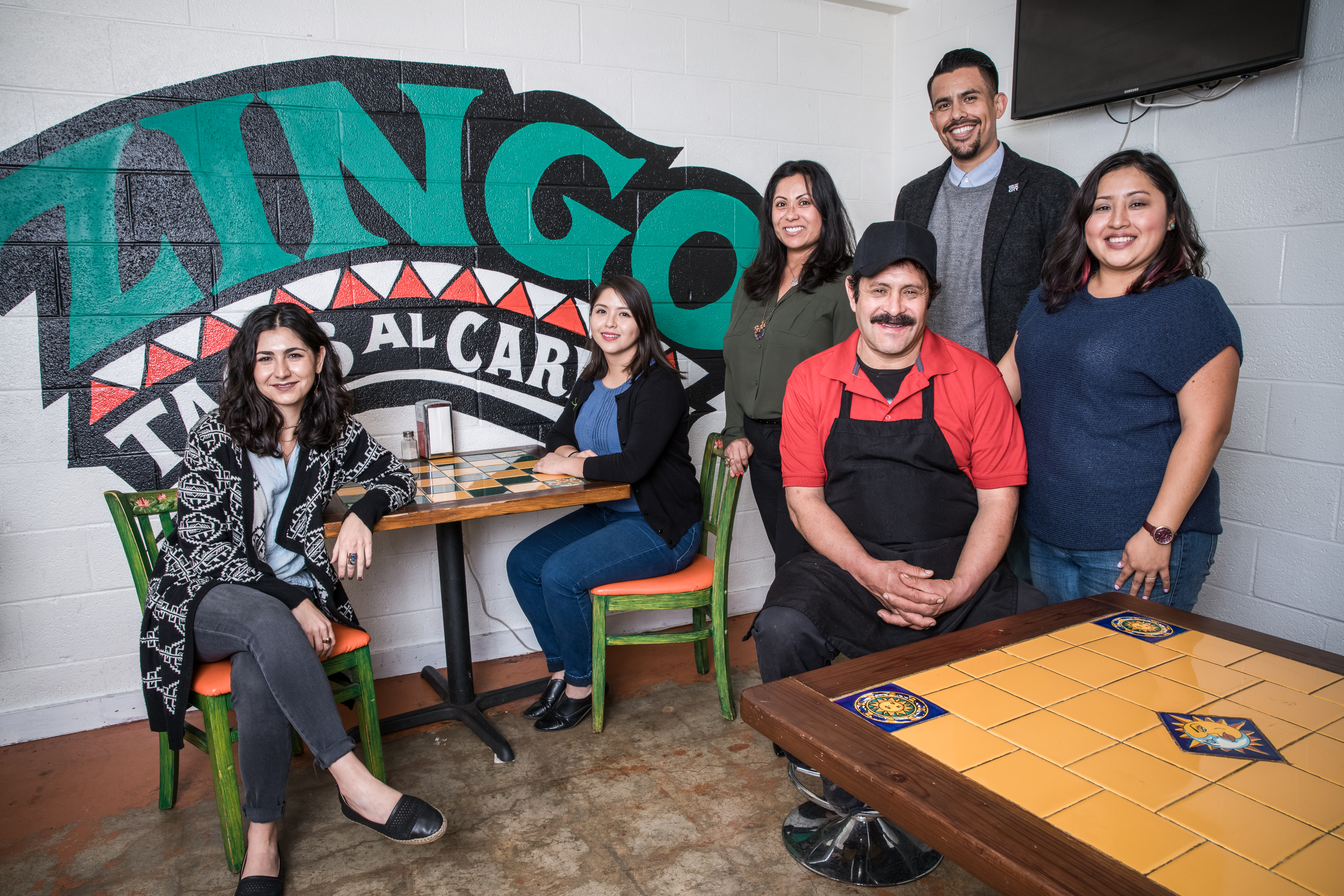LURN – Los Angeles
Rudy Espinoza, an urban planner with a background in business, is passionate about finding creative ways to revitalize low-income neighborhoods in Los Angeles,…
Read MoreFinancing Partners:
|
Capital Impact Partners |
Financing:
|
$75,000 Working Capital |
Rudy Espinoza, an urban planner with a background in business, is passionate about finding creative ways to revitalize low-income neighborhoods in Los Angeles, where residents face systemic barriers to success and well being. As the Executive Director of Leadership for Urban Renewal Network (LURN) based in Boyle Heights, Espinoza works to increase opportunities and resources for people to start and grow business in a way that is also good for their community. Food entrepreneurs including street vendors and corner stores are LURN’s core clients, and increasing healthy food options for local children and families is a natural community benefit.
Espinoza notes, “People want to sell healthy food, but they don’t have the capital.” So LURN launched The Semi’a (Spanish for “seed”) Fund, with capital from FreshWorks, offering low cost loans and personalized business coaching to micro-entrepreneurs locked out of the traditional lending market.
According to Espinoza, the lack of access to capital and barriers that entrepreneurs face in neighborhoods like Boyle Heights did not happen overnight. He cites a history of redlining and racial discrimination that have historically designated certain communities as “too risky” to invest in. In Los Angeles, the result of these policies is a stark racial wealth gap with white households registering a median net worth of $350,000 while Mexican and Black households have median net worths of $4,000 and $3,500 respectively. “Low-income entrepreneurs do not have the friends and family network to provide the patient capital to allow them to move up the ladder, Espinoza explains, “and that is a market failure that we have to try and fix.”
The Semi’a Fund, launched in 2015, takes a holistic approach to lending, looking not just at financials but at people as individuals and members of communities. Rather than simply a financial investment, Espinoza sees Semi’a as “a pathway for black and brown food vendors and owners to acquire the resources they need to take care of their families.” He envisions a community where these business owners can gain access to capital, invest in providing more healthy food, and enable community members to grow wealth and improve health within their neighborhood. In addition offering low cost loans, LURN provides tailored technical assistance and program structures to ensure success. For example, loan repayments are collected on a weekly basis rather than monthly because business owners found smaller payments easier to manage. LURN also requires all loan recipients to attend regular one-hour business coaching sessions every other week to ensure business owners are adequately accessing the support services they need to be successful.
FreshWorks developed The Food Enterprise Micro-lending Intermediary (FEMI) Program to support organizations working on the ground, like LURN, provide capital directly to their clients. Because of their deep investment and connections in their community, LURN was an ideal candidate to serve as an intermediary lender, according to Olivia Rebanal, Director of Loan Programs at Capital Impact Partners and FreshWorks lender. ““Rudy is such a dynamic leader and vocal advocate, and LURN holds such deep relationships with community members and organizations,” Rebanal enthusiastically explains, “They are so well positioned to do this best.”
Capital Impact/FreshWorks provided a $75,000 3-year loan the Semi’a fund as well as a companion grant to support LURN’s role as a community finance partner. “This was their first experience, and our grant allowed them to build capacity,” notes Rebanal. She believes this support from FreshWorks’ FEMI program was an important piece to allow LURN to mature and stabilize as an economic development organization. Rebanal concludes, “They’ve produced fantastic results, I’d love to see their work grow.”
In 2017, the Semi’a Fund deployed $150,000 in capital and has commitments to increase that amount to $250,000 in 2018. To increase impact, LURN now pairs Semi’a loans with equity investments through their recently launched Restore Fund. Investments through Restore are made in exchange for a minority ownership share of the business and provide the type of patient investment and support needed for entrepreneurs to scale their businesses. “None of us can do anything alone,” Espinoza emphasizes, “Even the most successful people get support and these entrepreneurs are not different, now they are step closer to having the support they need.”
Looking ahead, Espinoza wants to be able to close the racial wealth gap, which is predicted to double by 2040. With a 100% repayment rate on Semi’a Loans, LURN has demonstrated the need to change traditional definitions of which communities and entrepreneurs are seen as “high risk”. Espinoza also wants businesses and investors to redefine profit as well, stating, “Profit needs to include people; their benefit should be meaningful, measured, and what shareholders care about.”
